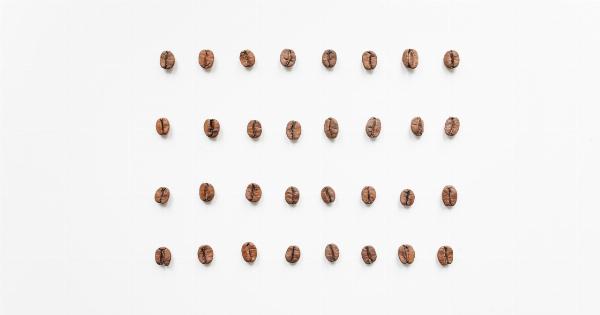Your liver plays a vital role in your body’s detoxification process by filtering and removing harmful substances.
However, due to poor lifestyle choices, exposure to environmental toxins, and unhealthy eating habits, toxins can accumulate in the liver, impairing its function. Identifying these signs early on can help you take necessary steps to cleanse and support your liver, promoting overall health and well-being.
1. Persistent fatigue and low energy levels
If you constantly feel tired, sluggish, or lack energy despite getting enough rest, it could be a sign that your liver is struggling to eliminate toxins effectively.
The accumulation of toxins puts a strain on your liver, impacting its ability to produce energy and leaving you feeling fatigued.
2. Unexplained weight gain or difficulty losing weight
A congested liver can lead to weight gain or make it challenging to shed those extra pounds. When your liver is overloaded with toxins, it focuses on processing them rather than metabolizing fat effectively.
This can result in weight gain, especially around the abdominal area, and make it harder for you to lose weight despite efforts like exercise and a healthy diet.
3. Digestive issues and bloating
The liver produces bile, which aids in the digestion and breakdown of fats. When the liver becomes overwhelmed with toxins, it may produce less bile, leading to digestive issues such as bloating, constipation, or an upset stomach.
Persistent bloating and indigestion can be a sign that your liver is struggling.
4. Skin problems
Your skin is often a reflection of your internal health, and a congested liver can manifest in various skin issues.
Acne, eczema, psoriasis, or other chronic skin conditions may indicate that toxins are accumulating in your liver and affecting its ability to filter them out effectively.
5. Jaundice
If your skin and the whites of your eyes develop a yellowish hue, it could be a sign of jaundice, a condition caused by a build-up of bilirubin in the blood. Bilirubin is a yellow pigment produced when the liver breaks down red blood cells.
When the liver is overwhelmed by toxins, it may struggle to process bilirubin, resulting in jaundice.
6. Allergies and sensitivities
An overloaded liver can compromise your immune system, making you more susceptible to allergies and sensitivities.
If you notice an increase in allergies, such as sneezing, itching, or congestion, or if you develop new sensitivities to certain foods or environmental triggers, it could be an indication that your liver needs support.
7. Hormonal imbalances
The liver plays a crucial role in hormone regulation and metabolism. If your liver is unable to effectively detoxify excess hormones, they can build up in your system, leading to hormonal imbalances.
Symptoms may include menstrual irregularities, mood swings, low libido, or fertility issues.
8. Poor concentration and brain fog
When toxins accumulate in the liver, they can affect your brain function, leading to poor concentration, memory problems, and brain fog.
If you find it difficult to focus or experience mental fatigue even after adequate rest, it could be a sign of a toxic liver.
9. Increased sensitivity to alcohol
If you find that even a small amount of alcohol affects you more than usual, it may indicate that your liver is overloaded with toxins.
The liver metabolizes alcohol, but when it is already burdened with toxins, it struggles to break down alcohol efficiently.
10. Dark urine and pale stools
An unhealthy liver can affect the color of your urine and stools. If your urine appears darker than usual or your stools become pale or clay-colored, it could be an indication of liver dysfunction.
This change in color occurs due to the reduced production of bile, which gives urine its yellow color and stools their brown color.
Supporting your liver health
If you experience several of the above signs, it’s essential to take steps to support your liver detoxification process and help restore its health. Here are some ways to do that:.
1. Eat a balanced and liver-friendly diet
Incorporate nutrient-rich foods into your diet that promote liver health, such as leafy greens, cruciferous vegetables, garlic, turmeric, beets, and lemon.
Avoid processed foods, refined sugars, alcohol, and excessive consumption of saturated fats, which can burden your liver further.
2. Stay hydrated
Proper hydration helps flush out toxins from your body, including your liver. Drink an adequate amount of water throughout the day and limit your intake of sugary beverages or excessive caffeine.
3. Exercise regularly
Maintaining an active lifestyle can enhance blood circulation, aid in toxin elimination, and support overall liver health. Engage in activities like walking, jogging, swimming, or yoga to promote optimal liver function.
4. Limit alcohol consumption
Excessive alcohol can cause severe damage to your liver. If you suspect liver issues, it is best to avoid alcohol altogether or limit your intake to moderate levels recommended by health professionals.
5. Avoid exposure to toxins
Be mindful of your environment and minimize exposure to toxins. Limit your use of household chemicals, opt for natural cleaning products, and choose organic produce to reduce your intake of pesticides and herbicides.
6. Consider liver-supportive supplementation
Certain herbs and supplements can aid liver detoxification and support its health. Milk thistle, dandelion root, turmeric, and artichoke extract are commonly used supplements to support liver function.
However, consult with a healthcare professional before starting any supplementation regimen.
7. Reduce stress levels
Chronic stress can negatively impact liver function. Practice stress-reducing techniques like meditation, deep breathing exercises, or engaging in hobbies you enjoy to alleviate stress and promote liver health.
8. Get enough sleep
Quality sleep is crucial for allowing your body to repair and rejuvenate, including liver cells. Aim for 7-8 hours of uninterrupted sleep each night to support your liver’s detoxification process.
9. Consider a liver cleanse or detox program
Under the guidance of a healthcare professional, you may consider a liver cleanse or detox program to help eliminate accumulated toxins and support your liver’s function.
These programs often involve dietary changes, herbal supplements, and specific protocols tailored to individual needs.
10. Regularly monitor your liver health
Consult with your healthcare provider to monitor your liver health regularly through blood tests and physical examinations. This proactive approach can help identify potential liver issues early on and enable prompt intervention.































